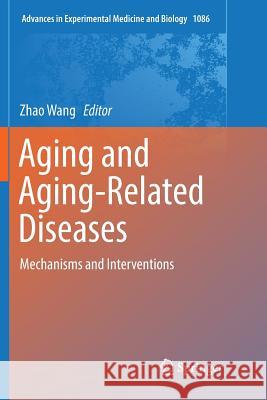Aging and Aging-Related Diseases: Mechanisms and Interventions » książka
topmenu
Aging and Aging-Related Diseases: Mechanisms and Interventions
ISBN-13: 9789811345715 / Angielski / Miękka / 2019 / 282 str.
Kategorie BISAC:
Wydawca:
Springer
Seria wydawnicza:
Język:
Angielski
ISBN-13:
9789811345715
Rok wydania:
2019
Wydanie:
Softcover Repri
Numer serii:
000253056
Ilość stron:
282
Waga:
0.41 kg
Wymiary:
23.39 x 15.6 x 1.57
Oprawa:
Miękka
Wolumenów:
01
Dodatkowe informacje:
Wydanie ilustrowane











